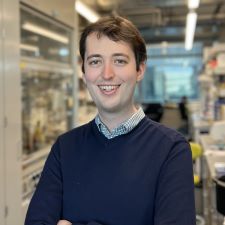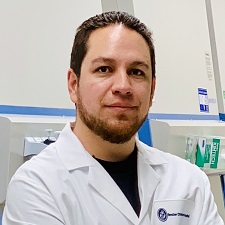Chromatin remodelers are complex protein machines responsible for packaging DNA and regulating gene expression. Their dysfunction is strongly implicated in cancer. For example, certain types of sarcoma and ovarian cancer are driven by mutations in a chromatin remodeler called BAF. Combining experiments with theoretical work, Dr. Owen’s research aims to understand how remodelers recognize their target sites in the cell’s nucleus. By expanding our understanding of chromatin remodeling, the findings of this research will provide the groundwork for more effective cancer treatments—suggesting how drugs might target chromatin remodelers—as well as enhance our understanding of how existing drugs that target remodeler-adjacent mechanisms might work.
A central aim of this project is the development of new, quantitative models to explain the behavior of chromatin remodelers seen in experiments. Dr. Owen will achieve this by successive rounds of passing between theory and experiments repeatedly—measuring, modeling, then measuring again. For comparison to experiments, model predictions will be extracted computationally (e.g., numerically solving ODEs, or by exact stochastic simulation using Gillespie’s algorithm) or analytically (e.g., by the King-Altman procedure, and variants), as appropriate.


